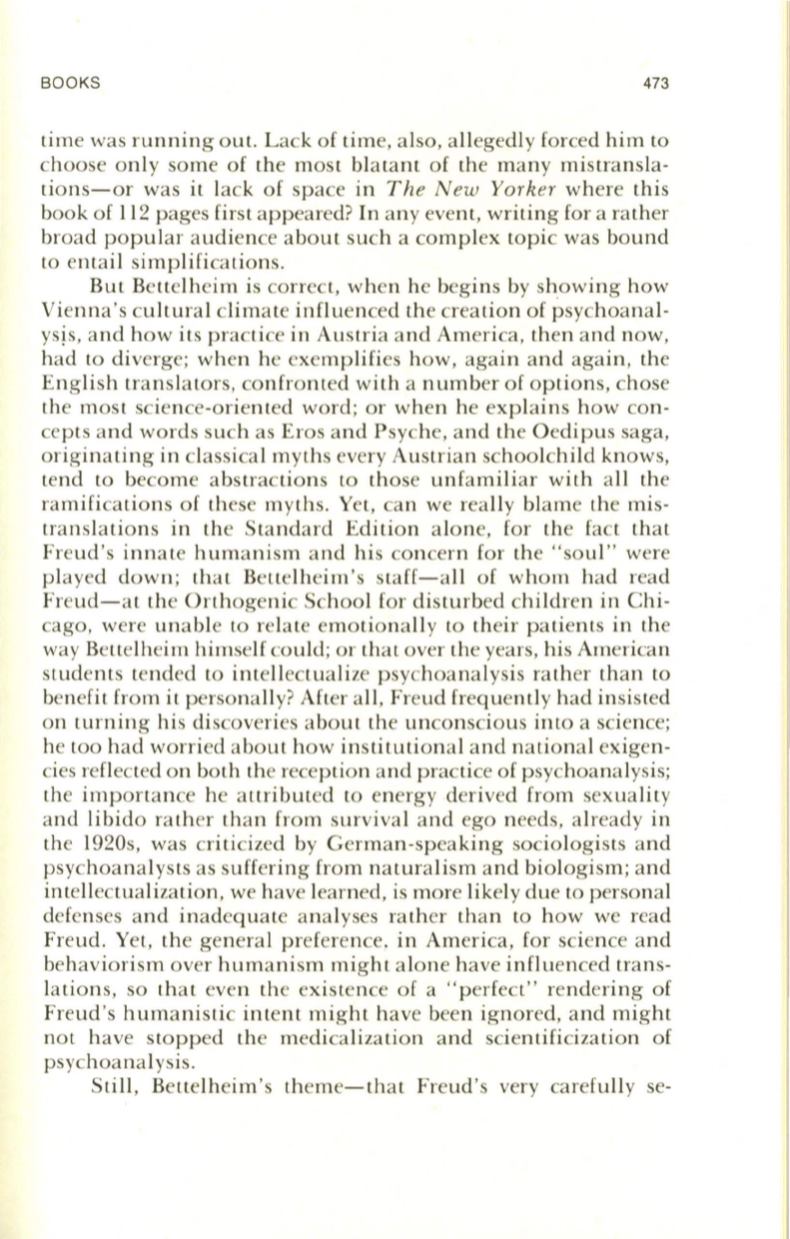
BOOKS
473
time was running out. Lack of time, also, allegedly forced him to
choose only some of the most blatant of the many mistransla–
tions-or was it lack of space in
The New Yorker
where this
book of 112 pages first appeared?
In
any event, writing for a rather
broad popular audience about such a complex topic was bound
to entail simplifications.
But Bettelheim is correct, when he begins by showing how
Vienna's cultural climate influenced the creation of psychoanal–
ys~s,
and how its practice in Austria and America, then and now,
had to diverge; when he exemplifies how, again and again, the
English translators, confronted with a number of options, chose
the most science-oriented word; or when he explains how con–
cepts and words such as Eros and Psyche, and the Oedipus saga,
originating in classical myths every Austrian schoolchild knows,
tend to become abstractions to those unfamiliar with all the
ramifications of these myths. Yet, can we really blame the mis–
translations in the Standard Edition alone, for the fact that
Freud's innate humanism and his concern for the "soul" were
played down; that Bettelheim's staff-all of whom had read
Freud-at the Orthogenic School for disturbed children in Chi–
cago, were unable to relate emotionally to their patients in the
way Bettelheim himself could; or that over the years, his American
students tended to intellectualize psychoanalysis rather than to
benefit from it personally? After all, Freud frequently had insisted
on turning his discoveries about the unconscious into a science;
he too had worried about how institutional and national exigen–
cies reflected on both the reception and practice of psychoanalysis;
the importance he attributed to energy derived from sexuality
and libido rather than from survival and ego needs, already in
the 1920s, was criticized by German-speaking sociologists and
psychoanalysts as suffering from naturalism and biologism; and
intellectualization, we have learned, is more likely due to personal
defenses and inadequate analyses rather than to how we read
Freud. Yet, the general preference. in America, for science and
behaviorism over humanism might alone have influenced trans–
lations, so that even the existence of a "perfect" rendering of
Freud's humanistic intent might have been ignored, and might
not have stopped the medicalization and scientificization of
psychoanal ysis.
Still, Bettelheim's theme-that Freud's very carefully se-


